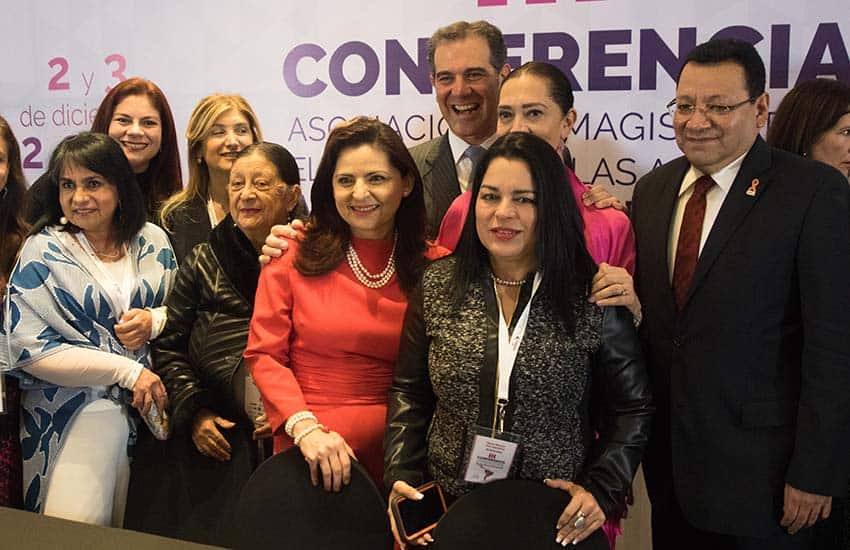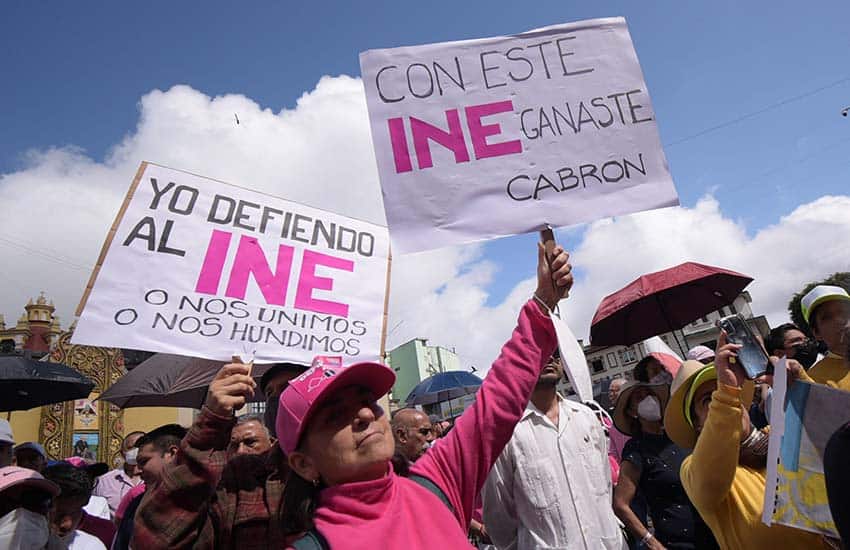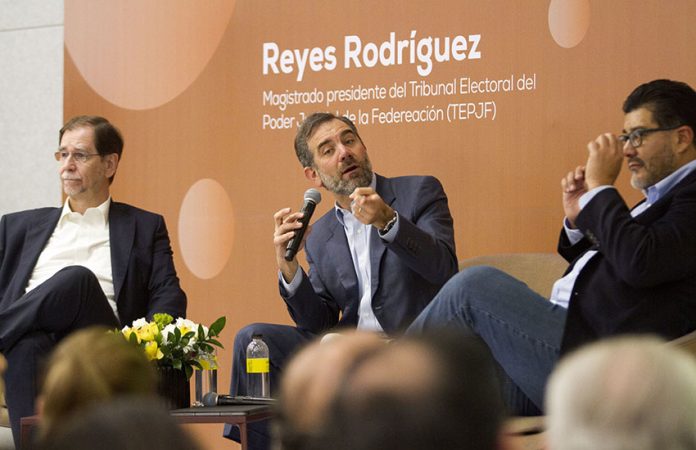The next president of the oversight agency in charge of elections throughout Mexico — including the 2024 presidential election — will be a woman, according to a ruling made by the country’s elections tribunal.
The announcement was made by the Superior Chamber of the Electoral Tribunal of the Federal Judiciary (TEPJF). A magistrate on that body, Judge Mónica Soto, said the decision had nothing to do with quotas, but was based on establishing gender parity and balance.
The decision means that the National Electoral Institute (INE) — an autonomous, national, public institution that organizes elections at all three levels to ensure that they are run cleanly — will for the first time in its history be run by a woman.
The decision was hailed the next day by President López Obrador.
“Women tend to be more honest, more responsible and fairer than men,” the president declared on Thursday morning. “They contribute a lot.”
Whichever woman ends up leading the 11-member National Electoral Institute (INE), she will be replacing the current president, Lorenzo Córdova Vianello, whose nine-year term comes to an end in April.

The INE is an autonomous, national, public institution that organizes and supervises all three levels of government. It aims to strengthen electoral democracy and guarantee the rights of citizens when it comes to voting.
Since its creation in 2014 as part of constitutional reform, the INE has been chaired only by Córdova, so granting another man a nine-year term would mean 18 straight years of the agency being headed by a man.
Moreover, the INE’s predecessor, the Federal Electoral Institute (IFE), was chaired by women only in short periods on an interim or a transitional basis.
In choosing the INE’s next leader, its technical evaluation committee will craft what will be a list of five women candidates, and the Congress will have the final say on who ultimately fills the position.
The general council of the INE is made up of a president and 10 electoral councilors. Córdova and three councilors will conclude their terms on April 23, meaning four vacancies will soon need to be filled; the presidency and one other vacancy will be filled by women, and two by men, TEPJF announced.
During the Superior Chamber session at which the ruling was announced, Judge Janine Otálora said that trying to achieve gender parity on a slow, gradual basis is foolhardy, and that the time is right for the country’s main electoral board to be chaired by a woman.

“I consider that the historical context of the integration of the INE demands that the presidency be occupied by a woman [to reflect] the principle of parity and the substantive participation of women” in government, Otálora said. Other TEPJF members supported her argument.
As of Wednesday, 424 people had begun the registration process for one of the four upcoming INE vacancies, including the presidency, though only 35 had completed the process. Applications close on Thursday, Feb. 23.
After a second phase of evaluations, the seven-member INE evaluation committee will create a list of five candidates for each opening by March 26. Current councilors are allowed to compete for the presidency, although re-election to the INE council isn’t allowed, so their term length will have to be addressed.
Candidates cannot be a leader or a member of a political party, and they cannot have run for an elected position in the previous four years.
In his morning press conference on Thursday, López Obrador said that equality for women must be fought for in different fields, not only in politics.
He pointed out that the majority of the beneficiaries of state welfare programs are women, and also denied that resources destined to support women were being cut.
With reports from Animal Politico and Aristegui Noticias
